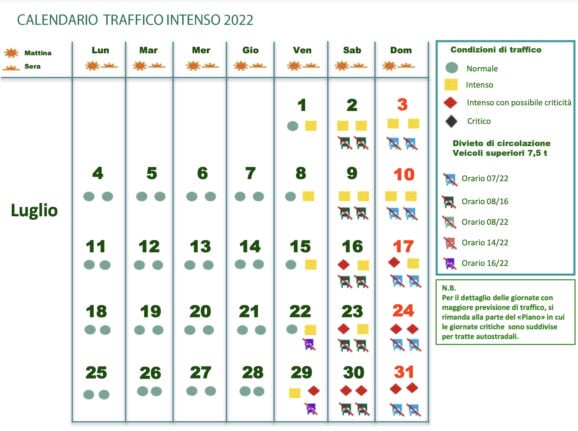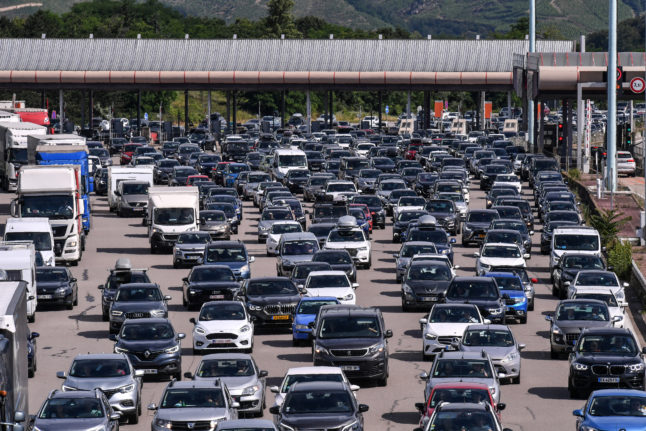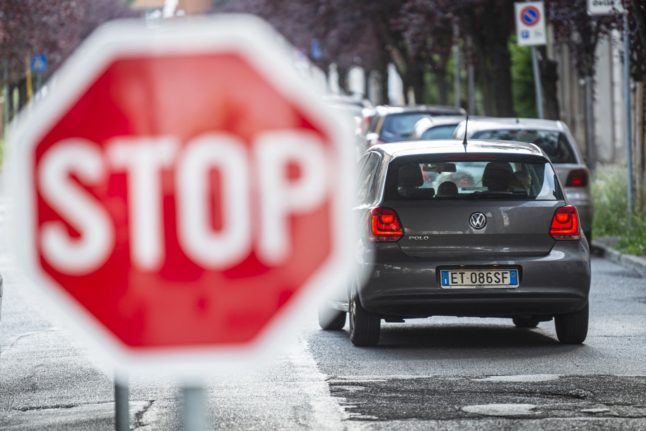Italy’s autostrade (motorways) usually see little in the way of heavy traffic, at least outside of the major cities.
But in summer that all changes, as everyone escapes the baking hot cities for the cooler air of the mountains or the coast.
Not only do motorways become much busier, but many smaller roads, particularly in coastal areas and around holiday hotspots, become completely clogged with traffic.
The increased number of vehicles on the road isn’t just inconvenient: it can also be dangerous, with traffic deaths rising by an estimated seven percent in August.
READ ALSO: ‘Expect the unexpected’: What you need to know about driving in Italy
That’s why the Italian government issues warnings each year advising motorists to avoid peak travel times, and even publishes its own calendar showing when traffic is predicted to be at its worst.
The official forecast, produced as part of the ‘Viabilità Italia’ summer travel plan drawn up by the government, emergency services, and and state road agency ANAS, notes particularly busy dates to avoid.
The calendar is colour coded, with a ‘yellow’ spot indicating heavy traffic, ‘red’ indicating heavy traffic with ‘possible critical conditions’, and ‘black’ indicating ‘critical’ (i.e., dire) traffic.
No ‘black’ days have been predicted for July, but there are plenty of ‘red’ spots: the forecast says drivers can expect to experience heavy traffic on weekends throughout July with conditions worsening towards the end of the month.

The roads are predicted to be particularly crowded (a ‘red’ level warning) on Saturday and Sunday mornings, the government’s forecast shows.
Traffic is expected to get heavier on the weekend between Friday 22nd and Sunday 24th July, with highways especially clogged throughout the whole of Sunday 24th.
READ ALSO: How will Italy’s Amalfi Coast traffic limit for tourists work this summer?
The situation is then due to worsen further the following weekend, with the roads starting to fill up from the morning of Friday 29th and a ‘red’ warning appearing from Friday afternoon until the end of Sunday, July 31st.
The last weekend of July is traditionally the date of the first ‘mass exodus’ away from cities as many Italians start their summer holidays.
Traffic is expected to remain at normal levels during the working week (bar Friday afternoons) throughout the month of July.
READ ALSO: Q&A: Your questions answered about driving in Italy on a British licence
While the highways are likely to be jammed at various points over the next few weekends, July is still a better time to travel than in August, when Italians begin their holidays and travel en masse to the beach.
ANAS has yet to issue its forecast for August, but in previous years there have been multiple ‘black’ weekends warning of hours-long stationary traffic jams, particularly around the main Ferragosto summer holiday on August 15th.



 Please whitelist us to continue reading.
Please whitelist us to continue reading.
Member comments